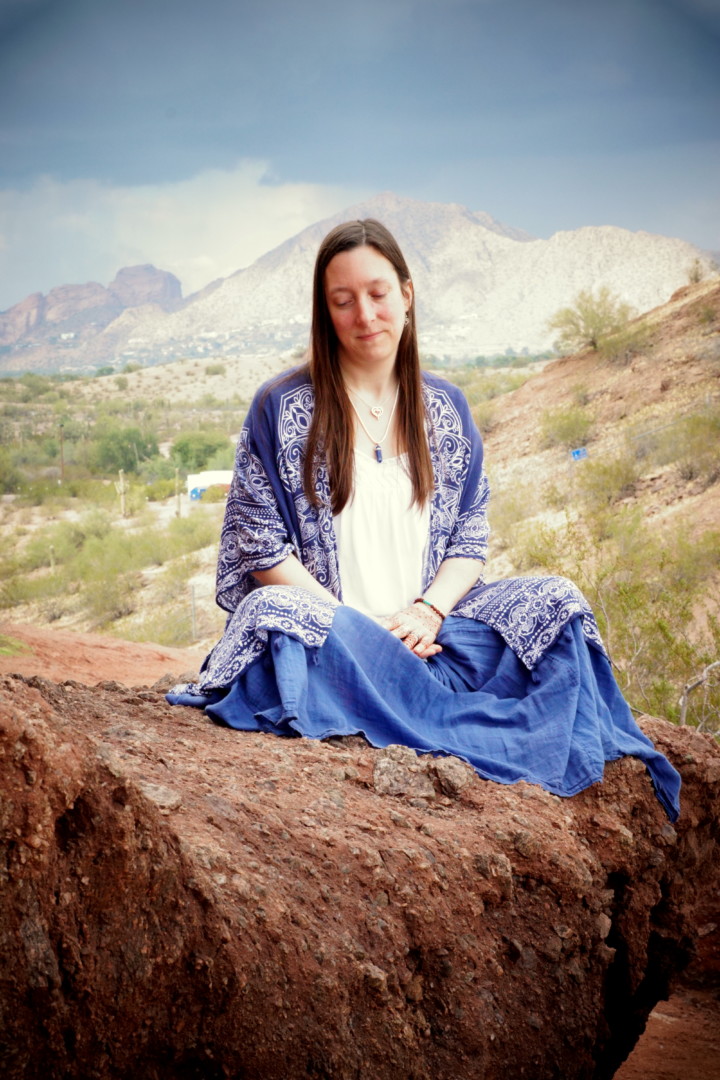
Contemplative practices have likely been in existence since the beginning of time, as humans are naturally aware and self-reflective. Although it’s difficult to trace the exact origins of meditation and it is now practiced all over the world by people with various beliefs, early recorded history indicates meditation as part of Buddhist practices in India. Other faiths and spiritual teachings carry references to meditation as well. Ultimately, meditation is a uniquely individual experience although pointers on how to meditate are shared through various practices.
My basic approach to meditation is simple – which is lovely since the life can feel all but simple at times.
We access our deepest nature – which is always present; although often overlooked. As we bring attention to the breath and inner body we become fully aware with the opportunity to notice what happens in the mind and body as we focus on our present moment experience.
Meditation provides a direct experience of the present moment and all of its intricate facets – right here, right now. As a person becomes aware of their inner experience of life, specific feelings or intentions can be explored. Meditation supports awareness of basic truths and is sometimes also referred to as affirmative prayer or centering.
“Meditation means awareness: to be aware of what you are doing, what you are thinking, what you are feeling, aware without any choice, to observe, to learn. Meditation is to be aware of one’s conditioning, how one is conditioned by the society in which one lives, in which one has been brought up, by the religious propaganda – aware without any choice, without distortion, without wishing it were different. Out of this awareness comes attention, the capacity to be completely attentive. Then there is freedom to see things as they actually are, without distortion. The mind becomes unconfused, clear, sensitive.” — Jiddu Krishnamurti
Becoming relaxed, centered, and grounded in the present moment are all facets of the way I experience and facilitate meditation. The process is not one to necessarily let go of thoughts as much as it is to be with yourself in the moment and explore the experience of being human. Conscious breathing and focus allow you to sift through thoughts while you experience resolve and peace within.
The benefits of meditation are continually being researched and proven in both novice and experienced meditators. Psychology Today reports that meditation “brings about dramatic effects in as little as a 10-minute session.” Benefits of meditation can include and are certainly not limited to: stress reduction, reduction in blood pressure, reduced anxiety and depression, reduced fear, physical and mental relaxation, increased ability to make life changes, focus, appreciation of challenges and relationships, physical, mental and emotional healing, and increased joy.
“Meditation is the movement of love. It isn’t the love of the one or of the many. It is like water that anyone can drink out of any jar, whether golden or earthenware; it is inexhaustible. And a peculiar thing takes place, which no drug or self-hypnosis can bring about; it is as though the mind enters into itself, beginning at the surface and penetrating ever more deeply, until depth and height have lost their meaning and every form of measurement ceases. In this state there is complete peace – not contentment which has come about through gratification – but a peace that has order, beauty and intensity.” — Jiddu Krishnamurti
If you would like to experience the benefits of meditation and awareness for yourself, explore simple meditation.